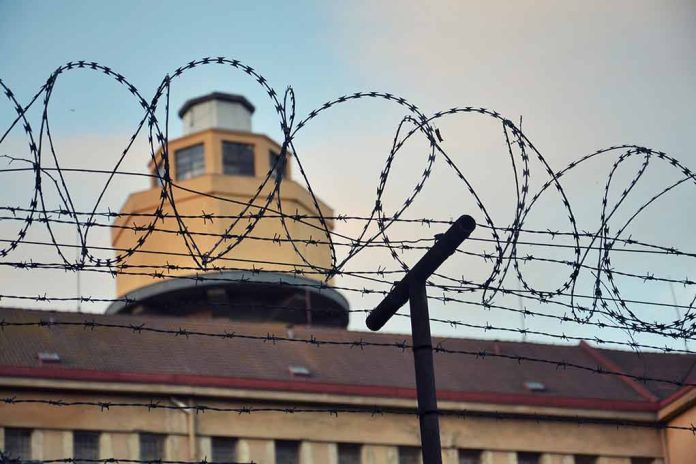
In a groundbreaking decision, an Indiana judge has mandated sex reassignment surgery for an inmate, defying state law.
At a Glance
- A federal judge ruled it unconstitutional for an Indiana prison to deny a transgender inmate sex reassignment surgery.
- Autumn Cordellionè, formerly Jonathan C. Richardson, is serving a 55-year sentence for reckless homicide.
- Indiana law prohibits taxpayer-funded sex reassignment surgeries for inmates.
- Indiana Attorney General Todd Rokita plans to appeal the decision.
- The injunction includes a 90-day review period until Cordellionè receives the surgery.
Federal Judge Overrules Indiana Law
An Indiana federal judge has ruled against the state prison system’s decision to deny sex reassignment surgery to inmate Autumn Cordellionè, initially known as Jonathan C. Richardson. Convicted of reckless homicide in 2001, Cordellionè filed a lawsuit assisted by the ACLU. The lawsuit claims the denial of the surgery violated the Eighth Amendment’s prohibition against “cruel and unusual punishment.”
The judge identified the surgery as vital for treating Cordellionè’s gender dysphoria, conflicting with Indiana legislation that forbids taxpayer money to be used for such surgeries. The court ordered the prison to take “all reasonable actions” to ensure the surgery is performed.
Cordellionè was diagnosed with gender dysphoria in 2020 and has been prescribed female hormones and testosterone blockers.
Indiana’s Attorney General Todd Rokita has expressed intentions to appeal the ruling, remarking it sets a dangerous precedent. Rokita’s office contends the decision undermines state law and forces taxpayers to fund elective surgery for inmates.
Cordellionè has received other gender-affirming accommodations such as panties, makeup, and form-fitting clothing. The lawsuit highlights that gender-affirming surgery is a medical necessity essential to aligning Cordellionè’s physical and gender identity.
Context of Cordellionè’s Incarceration and Lawsuit
Jonathan C. Richardson, known now as Autumn Cordellionè, was convicted of strangling his 11-month-old stepdaughter to death in 2001. Serving a 55-year sentence, Cordellionè’s battle for gender-affirming surgery is a significant legal confrontation. The ACLU argues this denial is a violation of the Eighth Amendment and the Equal Protection Clause of the Fourteenth Amendment.
The federal judge’s decision emphasizes Cordellionè’s gender dysphoria as a severe medical condition requiring surgical intervention to prevent serious harm. Ken Falk, the ACLU’s legal director, stated, “Today marks a significant victory for transgender individuals in Indiana’s prisons. Denying evidence-based medical care to incarcerated people simply because they are transgender is unconstitutional.”
“Today marks a significant victory for transgender individuals in Indiana’s prisons. Denying evidence-based medical care to incarcerated people simply because they are transgender is unconstitutional. We are pleased that the Court agreed,” said Ken Falk, the ACLU’s legal director.
This ruling has spurred substantial public debate, with various reactions highlighting the complexity and contentiousness surrounding gender dysphoria treatment and prisoners’ rights. The judge clarified this applies specifically to Cordellionè and does not broadly annul the state law prohibiting taxpayer-funded surgeries for others.
An Indiana judge recently ruled that a prison must provide transgender surgery for inmate who killed baby. Here’s my view on why that makes zero economic sense. pic.twitter.com/wK4zOH0Urv
— Vivek Ramaswamy (@VivekGRamaswamy) September 25, 2024
Mental Health and Medical Consensus
Cordellionè has a documented history of suicide attempts and self-surgery, highlighting the severe psychological distress resulting from gender dysphoria. The court acknowledged that gender-affirming surgeries are medically necessary to mitigate symptoms like anxiety, depression, and suicidal ideation. The ruling states, “While some transgender persons are able to be comfortable with their gender identity without surgery, for some, nonsurgical treatments are not sufficient to relieve their severe gender dysphoria.”
“Specifically, Ms. Cordellioné has shown that her gender dysphoria is a serious medical need, and that, despite other treatments Defendant has provided her to treat her gender dysphoria, she requires gender-affirming surgery to prevent a risk of serious bodily and psychological harm.”
The broader implications of this case touch on human rights, medical ethics, and the role of state legislation in medical treatment for inmates. As the appeal process unfolds, the intersection of legal and medical opinions will continue to be at the forefront of public discourse.







